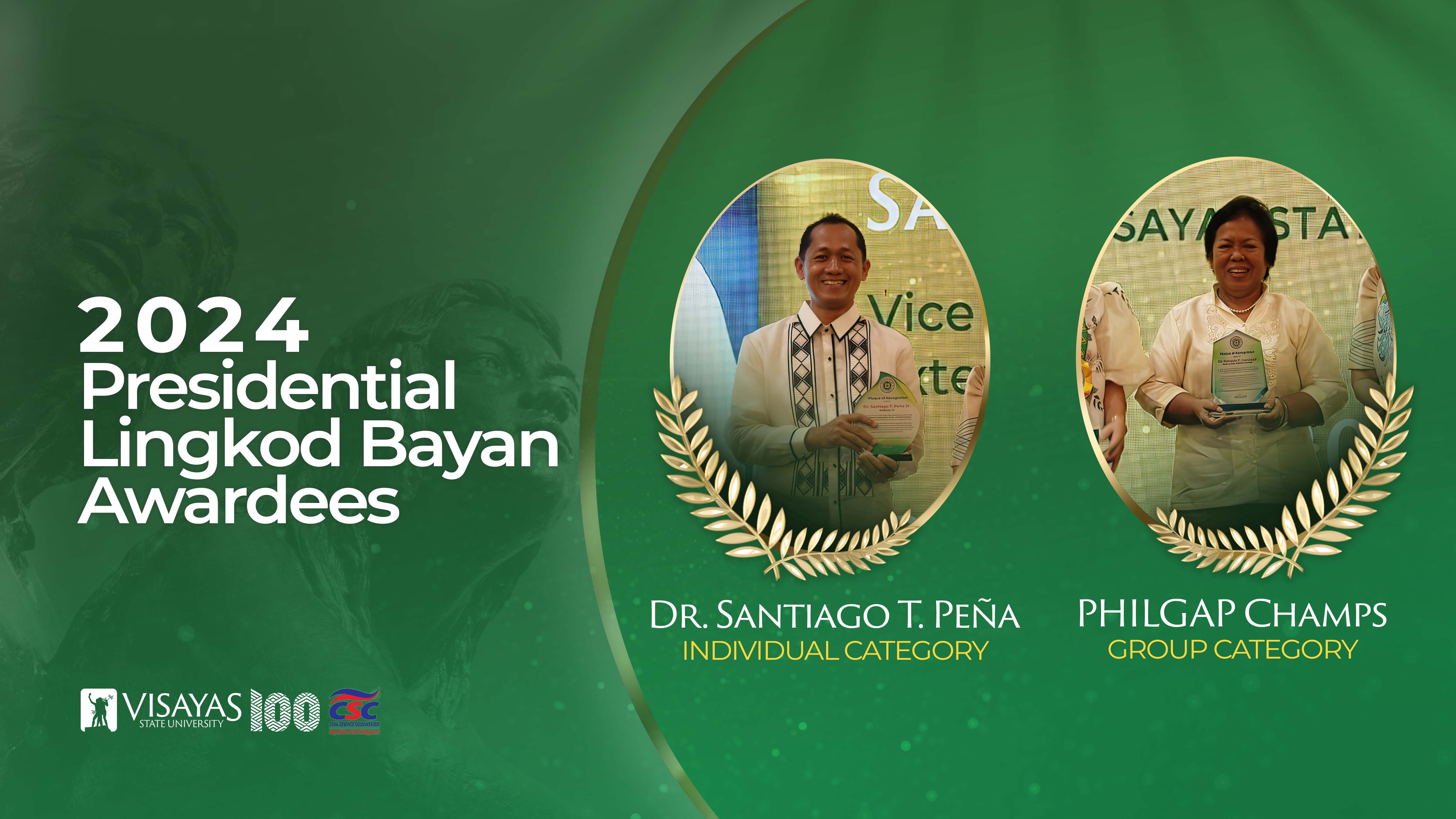VSU gets more Presidential Lingkod Bayan awardees from Civil Service
- Details
- Written by Adonna Canales Nilo
-
Published: 11 November 2024

The Philippine Civil Service Commission conferred Presidential Lingkod Bayan Awards to the VSU Vice President for Research, Extension, and Innovation, Dr. Santiago T. Peña, and PHILGAP Champs led by Dr. Zenaida C. Gonzaga for their exceptional contributions to the field of agriculture, research, and innovation.
These commendable individuals received medals and plaques from the Philippine President Ferdinand R. Marcos, Jr., for exhibiting outstanding service and projects on September 18, 2024, during the 2024 Awards Rites for Outstanding Government Workers held at the Malacañang Palace.
Dr. Peña bagged the award for successfully pursuing boar semen cryopreservation, a method that preserves and facilitates the distribution of highly desirable genes. This helps in safeguarding the future of the swine industry from any pig epidemics by preventing the transmission of particular pathogens.
Aside from the innovative way of conserving livestock from further diseases, this project also directly helps in increasing hog production.
As for the group category, PhilGAP Champs, consisting of Dr. Gongaza, Gideon Niel D. Tan, Concepcion B. Miro, and Miro C. Abarquez, won the award.
The integration of Good Agricultural Practices (GAP) in Baybay City, Leyte, headed by Dr. Gonzaga, envisions the enhancement of the efficiency of specific vegetable supply chains in the area, ensuring that the vegetables provided align more closely with locals' demands regarding quality, safety, nutritional benefits, and affordability.
The GAP program consists of four main components: production, socioeconomic, food safety, and training, through which farmers were trained to use protected cropping technology that makes use of bamboo covered with stabilized plastic. This structure supports the whole-year production and cultivation of vegetables even amidst heavy rain.
Compared to vegetables grown in an open field, it is found that this method yields vegetables at a higher rate.

